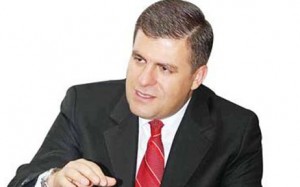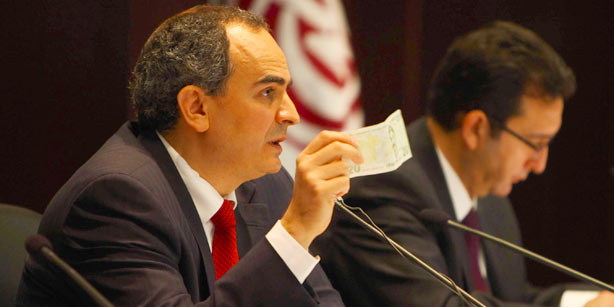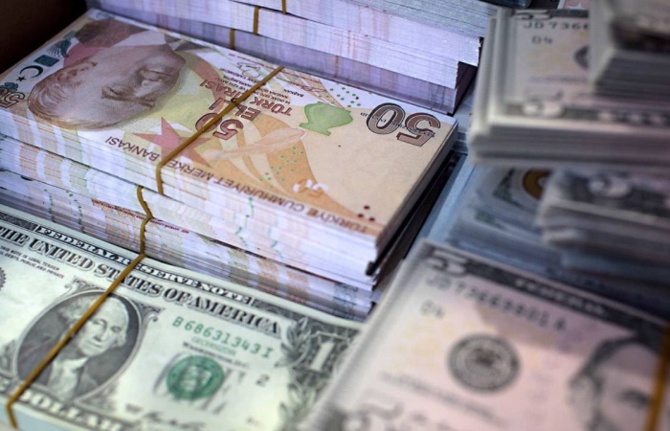Interview with Tevfik Bilgin, head of “Banking Regulation & Supervision Agency” in Turkey
 Down below is an interesting interview with Tevfik Bilginwho is one of the most influential of those who shape the Turkish economy is Tevfik Bilgin, the head of the Banking Regulation and Supervision Agency (BRSA).
Down below is an interesting interview with Tevfik Bilginwho is one of the most influential of those who shape the Turkish economy is Tevfik Bilgin, the head of the Banking Regulation and Supervision Agency (BRSA).
The interview is made by Capital magazine (Editor, BTT ).
THOSE WHO WORK BASLY SHOULD BE REPRIMANDED
He played an important role in the measures that lay behind the creation of the current healthy structures of the banks. In 2012 he advisers bankers to “conserve what you have, there is no going back”. Then he gives an important message: “When performing an audit, one should not put a bank which is working well in the same category as one which is working badly. One that is working badly should be reprimanded, regardless of the area in which it is operating.”
BRSA Chair Tevfik Bilgin explained the future of Turkish banking in 2012 and thereafter and the changes that global banking is undergoing.
Capital: One of the reasons that Turkey has been in a better position during the crisis is the strength of its banking system… What were the most successful measures that the BRSA took during this process?
– The BRSA has been in existence for 11 years. But all of the institution’s technical personnel come from the Treasury. There is a culture that comes from the Treasury. The most important difference between us and the other countries is in the inspection techniques that we use. We conduct audits in situ, whereas very few other counties do so. When performing an audit, one should not put a bank which is working well in the same category as one which is working badly. One that is working badly should be reprimanded, regardless of the area in which it is operating. Our regulations were completely changed by the Banking Law of 2005. At that time, the law was heavily criticized from a number of aspects but the need for the innovations that it brought is accepted today.
Capital: So what has been the most important impact of the institution on the current healthy structure?
– The most important is technical, concentration. Economies do not go well all the time. There are fluctuations. You have to be prepared for times when these fluctuations occur. The authorities need to squeeze banks a little in good times and be more flexible in bad times. They call this the “cyclical approach”. We tried to apply this cyclical approach. This approach should be applied all over the world. Banks should be squeezed during good times. For four years, despite all the criticisms, we have been distributing a specific proportion of profits and even for the best bank this does not exceed 20 percent. We keep the remainder in the bank. We coordinate with other institutions.
Capital: You issued a statement saying “don’t pay dividends for 2011”. Do you think that 2012 will be a bad year?
– For 2011 we sent a statement to the Banks’ Association and the Participation Banks’ association and said: “If you are going to pay dividends, please consult with us.” If they were going to pay dividends, we wanted to know what the bank’s profit was and what dividend they were going to pay. We look at a bank’s capital adequacy ratio and some balances according to our template. We look at how things are going and we say to the bank: “You say that you are going to pay dividends of TL 50 on a TL 100 profit but, please don’t be offended, we suggest you pay TL 15. Add the remainder to your equity resources and let both you and we be happy.” This is something which makes bank executives very happy…
A bank executive wants to strengthen his bank but in all likelihood the bank owners and the shareholders become angry. But they should think of the increase in the value of the bank over the long-term, and be happy. I mean, what we said does not just relate to 2012. We continue to be cautiously optimistic about 2012. But banking is the most risky business in the world. While you are working you will be optimistic but cautiously so. We shouldn’t just tell ourselves “We are doing really well”.
“HOLD ON TO WHAT YOU HAVE”
Capital: What recommendations would you make to Turkish bankers for 2012?
– Our bankers follow what is happening in the world and what is happening in Turkey. But sometimes they are over-optimistic. When there are fluctuations then, on the contrary, they become overpessimistic. In fact, they should not be optimistic or pessimistic. They should think everything through 50 times and then take decisions. They should be cautiously optimistic. It is also very important to preserve what they have. They should take measures to preserve what they have. This is the most important policy for the year ahead. There is definitely no going back.
Capital: How would you describe the performance of the banks in 2011?
– We see that profitability in 2011 has been lower as a result of the measures taken by the Central Bank. Profitability was extraordinary in 2009 and 2010. Likewise, according to the figures for October, profits are 13 percent down on the same period the previous year. I think that profits were around TL 20 billion last year and will be close to that figure this year. But when we look at the profits in real terms then they have fallen because of a growth in balance sheet assets. There will be a decline of around 13-15 percent in profits and this is perfectly normal. At the end of September last year, the banks’ return on assets was 2.57 percent. In September 2011, it was 1.76 percent. Last year, return on equity was 21 percent. In September this year, it was 15.3 percent.
Capital: What will be the most important risks for banking in 2012?
– The crisis in Europe will intensify in 2012 and Turkey is expected to be affected by it. This situation will affect the banks, of course. But I don’t think that it will have a very negative impact. Profits will fall again but it is difficult to say how much they will fall. I think the biggest risk in 2012 is country risk.
CAPITAL




